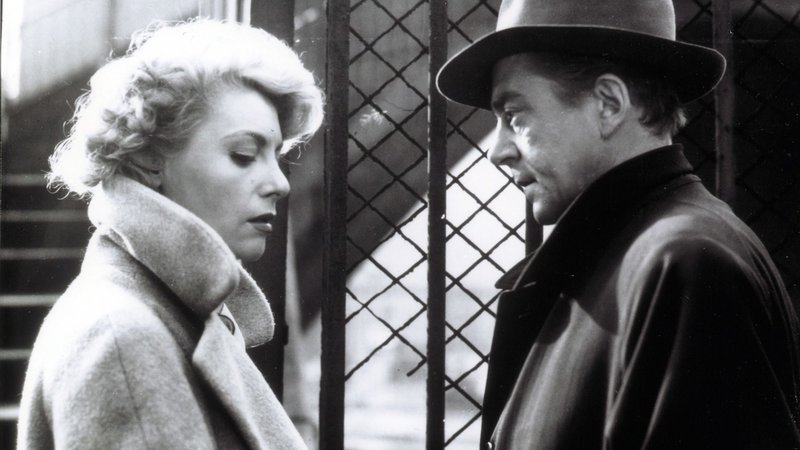
Screened as part of NZIFF 2001
Rififi 1955
Du rififi chez les hommes
A sweat-drenched robber coughs softly, just inches from a motion-sensitive alarm. A woman slowly peels off her clothes for a former lover, only to be belt-whipped across her bare back. A child points his toy gun at the head of a half-conscious murderer who is slowly bleeding to death. The dark pleasures of Rififi (also known as Du rififi chez les hommes) are legion, and they linger in the vivid, almost indelible manner shared by all great films.
Radiating white-hot suspense that’s suffused with sang-froid, Jules Dassin’s jewel-thief thriller crackles with the same excitement it exuded nearly a half-century ago. Few crime movies manage to capture the taut enthusiasm of planning a heist and the exquisite pain of trying to pull it off. But in the masterful hands of American expatriate director Dassin, the story of four tough-talking, itchingly desperate crooks (based on the pulp novel by Auguste Le Breton) comes delightfully alive.
There’s a blunt bleakness that defines Dassin’s vision; the director even insisted on shooting only on overcast days to enhance the story’s sense of fatalism. And in much the same way that he immortalized New York’s pulse-pounding rhythms in the all-location-shot The Naked City (1948), the director fashions Paris’ perpetually slick streets into a character in their own right, a silent witness to the greedy games of nocturnal criminals.
But what injects Rififi with a hungry humanity are the faces: Jean Servais’s middle-aged Tony le Stéphanois wears his prison time in the creases of his cheeks, while the younger Jo le Suédois (Möhner) and his crew (including Dassin himself as a libidinous Italian safecracker) strut like cocksure roosters. Dassin’s flair for sketching characters with a glance or a smile gives Rififi the emotional weight that pressures plot-turning moments into genuine drama. By the end, when Jo’s own son is kidnapped and turned into an underworld pawn while the quartet self-destructs, the film transcends its trappings as a simple heist flick and emerges as a deeply affecting fable of nihilism.
In the end, Rififi still feels fresh because of Dassin’s command of the medium. His assured direction reached a career apex with the movie’s 30-minute wordless theft scene, which offers a lesson in inspired filmmaking as one gripping image after another keeps the audience hooked. It’s rare to see such a delicious combination of enthralling energy and diamond-hard despair. — Stephen Garrett, Time Out NY, 20/7/00